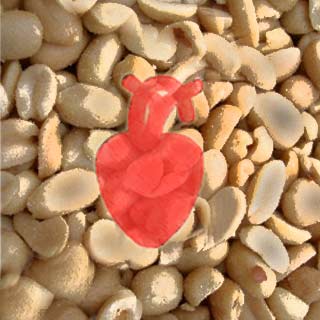
The experts from the presently conducted study have stated that women consuming more nuts and peanut butter were found to be more physically active, leaner and less prone to develop cardiovascular diseases. These investigators were noted to have assessed women suffering from Type 2 diabetes, which is presumed to heighten their risk of experiencing stroke or heart-related issues. This analysis was conducted by the experts from the Harvard Medical School and Harvard School of Public Health, Boston.
For the purpose of the study, the diet of around 6,000 women was believed to have been evaluated for more than a decade. These subjects were supposedly required to fill out a food questionnaire every 2-4 years within the observation period. It was evidently observed that during the course of the study, presumably there were more than 450 heart attacks and about 182 strokes.
The experts have noted that, “Consumption of at least five servings a week of one ounce of nuts or one tablespoon of peanut butter was significantly associated with a lower risk of cardiovascular disease.â€
It was observed that a regular intake of nuts and peanut butter may reduce these subjects risk of developing heart diseases. Further during the follow-up period it was also noted that these subjects evidently had a 44% decreased risk of developing heart problems and strokes.
“It is beneficial to include nuts in our diets as they are low in the saturated fats that raise our cholesterol,†says Ellen Mason, cardiac nurse for the British Heart Foundation. “Eating more of one food in isolation will not make much difference to your health if you are inactive and don’t have a balanced diet.â€
However, it was also said that nuts may contain a high amount of monounsaturated “good†fats and therefore are believed to contain high amounts of fats and calories. Therefore for this purpose restricting their excess intake on a daily basis could possibly prove to be a wise decision. More so, Mason says that avoiding cardiovascular diseases may have more to do than just consuming peanuts.
These findings were published in The Journal of Nutrition.
